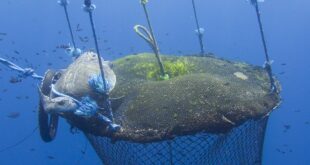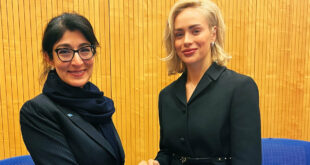
Ibadan, 23 December 2022. – The United Nations Office for Outer Space Affairs (UNOOSA) and the Government of the United Kingdom are strengthening their partnership with a new project to bolster space sustainability. Consequently, efforts will focus on raising awareness and building capacity related to implementing the Guidelines for the Long-term Sustainability of Outer Space Activities.
The project, which started in 2021, is now in its third phase. As a result, UNOOSA will create an open-access e-learning tool to help facilitate and improve understanding of the Guidelines and their implementation, with funding from the United Kingdom. UNOOSA will also hold a series of virtual events to connect diverse stakeholders and promote international cooperation and capacity-building on safe and sustainable space operations.
Through the Guidelines, Member States of the United Nations have agreed on the importance of maintaining safe and sustainable conduct of space activities indefinitely into the future. Therefore, countries should conduct activities to ensure equitable access to the benefits of the exploration and use of outer space for peaceful purposes by present generations while preserving the outer space environment for future generations
Acting Director of UNOOSA, Niklas Hedman, said: “The benefits of space technology are invaluable for our daily lives and sustainable development at large. We must jointly ensure that the steps we take today bring prosperity to current and future generations. Partnering with the UK Government has been instrumental in raising awareness about the importance of sustainable space activities, and we are thrilled to advance these efforts together.”
Likewise, Dr. Paul Bate, Chief Executive of the UK Space Agency, said, “humanity relies on the benefits of space to keep us safe, connected, and able to tackle climate emergencies. Supporting the development and delivery of tools that raise awareness of the Long-Term Sustainability Guidelines is an important step in championing space sustainability. We are proud to be working with UNOOSA on this initiative to advance knowledge-sharing with other countries and helping to develop capabilities in nations starting on their journey to space.”





